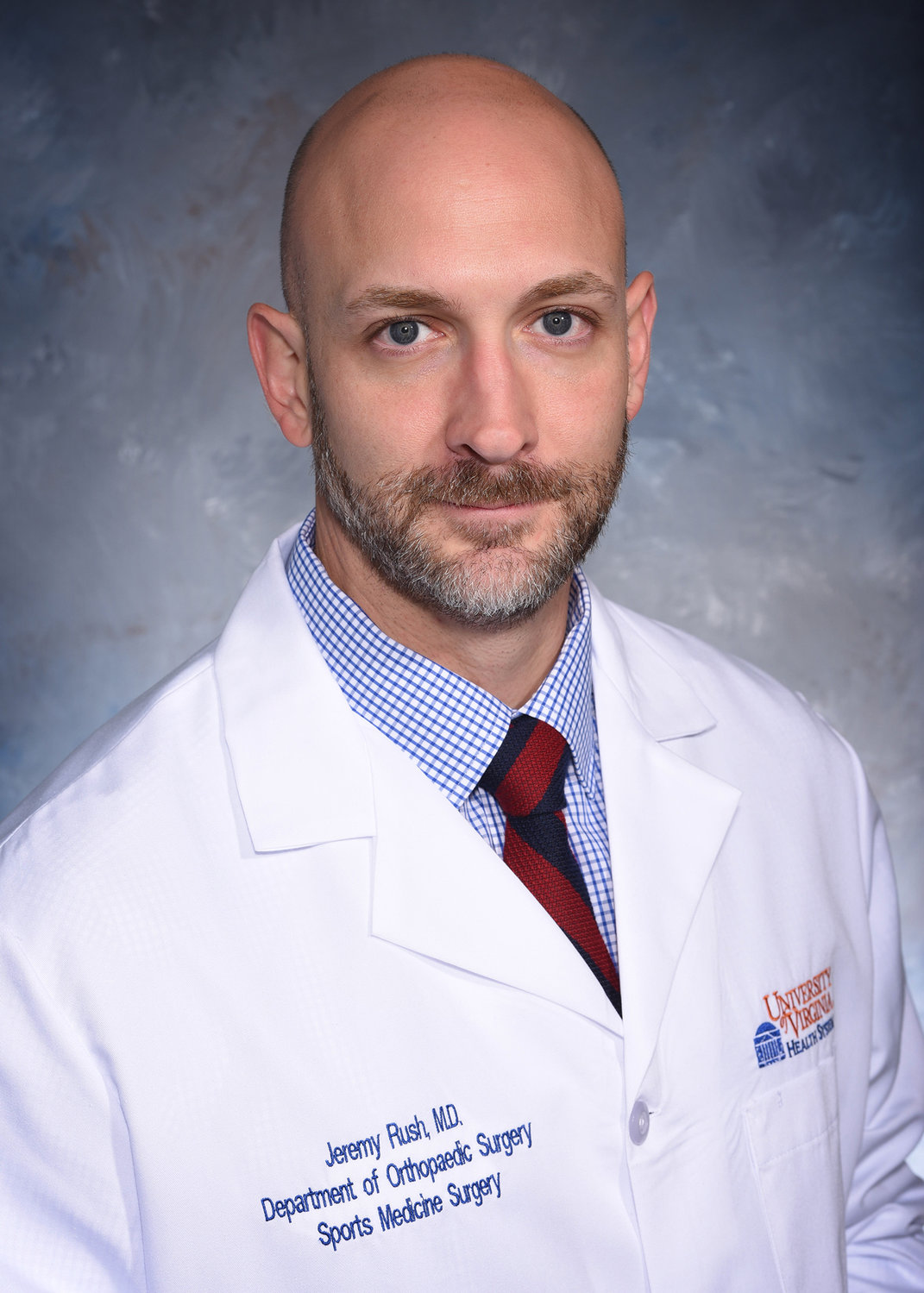Back-to-School Sports: Parents’ Commonly Asked Questions
Sports medicine surgeon Jeremy Rush, MD, evens the playing field for your young athlete by answering the most common back-to-school questions he gets from parents.
I’m really worried about concussions. What are the signs and how can I make our son tell us if he thinks he has one? He doesn’t want to miss playing time.
“There’s a misconception that you have to get knocked-out to have a concussion – that’s not the case. Signs of a concussion may include dizziness, headaches, confusion, memory issues, and sensitivity to light and noise. Kids are most honest about what happened to them right after the event occurred – they’ll usually say something like they got their ‘bell rung.’ But kids are kids, and many will say they’re OK and want to get back in the game. If an athlete has suffered a concussion, they can’t return to playing until they are completed healed and their symptoms are gone, otherwise they are at risk for an additional injury. That’s why sideline assessment and recognition of symptoms by coaches and trainers – and as well as parents – is so critical.”
Both my sons and now my daughter play soccer. My boys have never gotten hurt. Can I hope the same for my daughter?
“Girls are actually at a higher risk of some knee injuries, including ACL tears, than boys. Soccer, basketball, and gymnastics have the highest risk. A lot of it has to do with a woman’s physical structure, anatomy and muscle strength. Women also jump and land differently than men and this puts increased strain on the ACL. Warming up is especially important for women athletes. There are also new studies using neuromuscular training techniques that have shown to decrease the injury rate in women.”
How can I help prevent injuries to my child?
“Unfortunately, children and teens are more susceptible to injury because they’re growing. An adult twists an ankle and they get a sprain. A young athlete twists an ankle and could fracture a growth plate, because that growth plate is weaker than fully-developed bone. So, to help prevent injuries:
· Get a pre-participation or sports physical
· Participate in conditioning programs before playing the actual sport
· Have the correct – and correct fitting – protective gear for the sport
· Warm up before playing
· Know all the rules to the sport and obey all the rules
My son plays baseball practically year-round. Could he “burnout?” What can I do?
“Burnout is definitely a big issue in youth sports. Kids today have increased pressure to participate at a high level, to specialize in one sport early, and to play year-round, often on multiple teams. This increased emphasis on sports specialization has also led to more overuse injuries. We recommend taking one month off a sport for every three to four months it’s played. Make sure your child is getting good nutrition and plenty of sleep. Keeping workouts and practices interesting and fun is also important.”
My daughter’s in middle school. They want her to just concentrate on basketball. Should she specialize in one sport? Does it matter what age she is?
“Single-sport specialization is becoming more and more common at earlier ages. There’s a perception that specialization will lead to greater success at the next level. That’s not always the case though. In collegiate sports, a majority of the athletes played more than one sport in high school. At a recent NFL combine – where college players look to impress pro teams – 87 percent of the athletes played multiple sports in high school. There’s a lot to be said for being a well-rounded athlete. If there is pressure to specialize – wait as long as possible.”
What exactly makes up sports medicine?
“Sports medicine deals with the treatment and prevention of injuries and illnesses that relate to sports and exercise. It ranges from surgeries for things like ACL tears and shoulder injuries to non-operative treatment for concussions, heat illness and eating disorders. The great thing about sports medicine is you have surgeons and non-operative physicians working hand in hand with athletic trainers, physical therapists, and nutritionists to keep athletes healthy and get them back on the field.”
What are the benefits in seeing a sports medicine doctor who specializes in pediatrics?
“We know youth sports, we understand how children and teens are developing and growing, and we understand how injuries can affect that development and growth.”
More Questions?
Dr. Rush practices at Nemours Children’s Specialty Care, which has three Northeast Florida locations. To schedule an appointment with Dr. Rush or one of Nemours’ other sports medicine experts, call (904) 697-3600.








